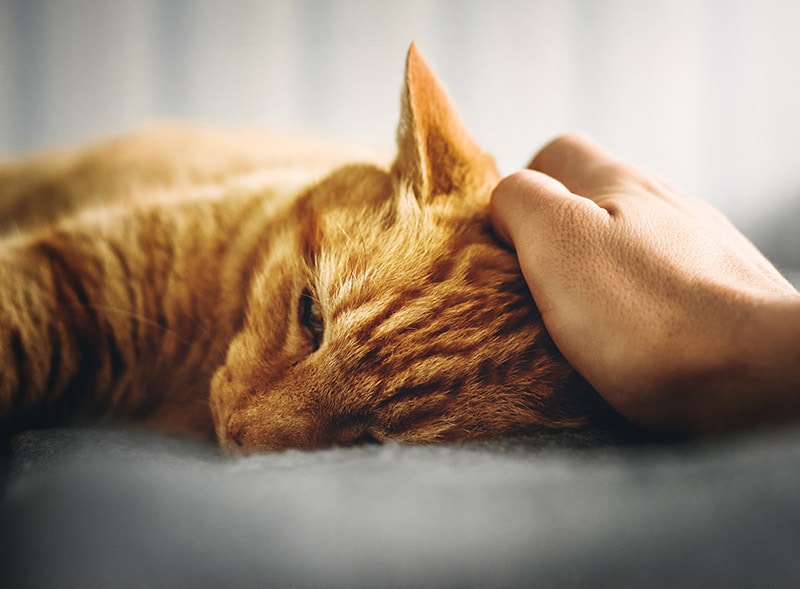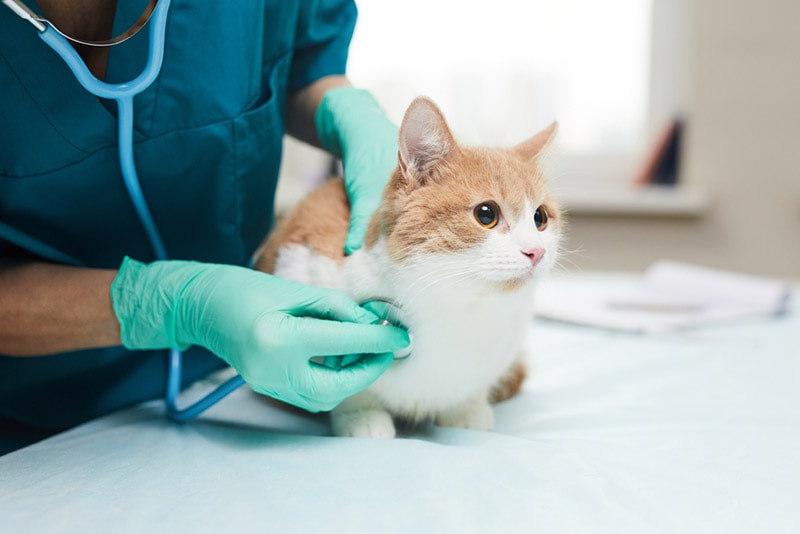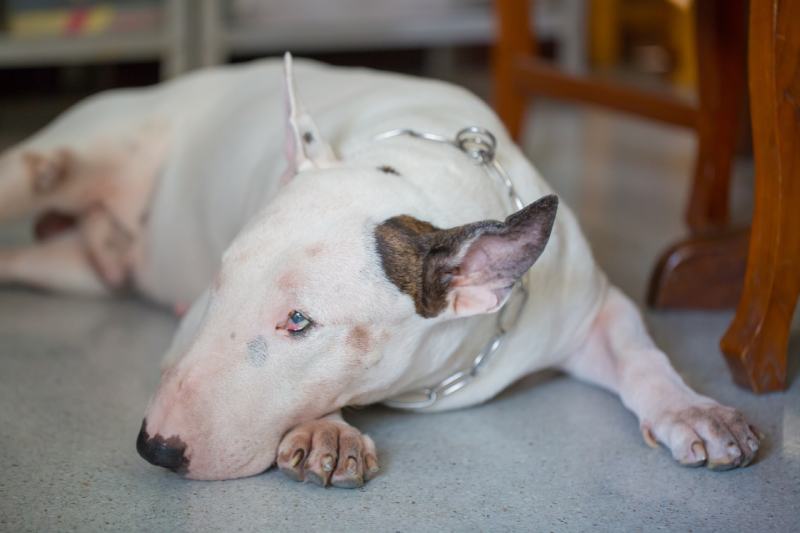Pancreatic Cancer in Cats: Signs, Causes & Prognosis (Vet Answer)
Updated on

While certain pancreatic diseases are fairly straightforward to identify and treat, pancreatic cancer remains a tricky disease in cats. Standard blood tests can usually find changes related to the former diagnoses but, unfortunately, do not rule out pancreatic cancer.
Whether a cat is suffering from a primary or secondary pancreatic tumor that is benign or malignant, this article will explore the signs of pancreatic cancer in cats and the diagnostic and therapeutic interventions that can be taken to address it.
Signs of Pancreatic Cancer in Cats
A cat owner may begin to notice that something is wrong when a cat starts exhibiting fairly non-specific clinical signs at home. Here are some questions that may cross your mind:
- Why is my cat vomiting all over the house?
- Why is she refusing to eat (even her treats) and continuing to lose weight when we are giving her medicine?
- Is her diet the cause of her malaise?
These are questions that many a cat owner may come to ask when it turns out that their beloved feline companion is failing to respond to standard supportive care for non-specific gastrointestinal signs.
While some cats with pancreatic cancer may show these signs, many are asymptomatic for a long time. Only until very late in the course of the disease process do they begin to show any sign of problems, such as the following:
- Vomiting
- Diarrhea
- Inappetence
- Weight loss
- Abdominal pain
- Jaundice (if the tumor growth causes a bile duct obstruction)
- Trouble breathing
- Lameness
- Alopecia (hair loss)

Causes of Pancreatic Cancer in Cats
Unfortunately, even cats who have annual wellness exams and routine blood work done on them are susceptible to developing pancreatic cancer.
A minimum database consisting of baseline blood work and urinalysis is incredibly helpful in ruling out common diseases in cats but fails to show specific changes that may suggest cancer.
Some cats may be anemic and/or have an increased type of white blood cell count and elevated liver enzymes, but there also may not be any abnormalities seen with these tests.
Furthermore, certain pancreas-specific enzymes, such as lipase, which are typically very high in cats with pancreatitis, may be normal in patients with pancreatic cancer. Radiographs are often used to figure out abdominal pain and vomiting in cats. As great as they are for catching tumors in other abdominal organs, pancreatic cancer is usually not readily apparent.
Short of exploratory abdominal surgery (which is often how a diagnosis of pancreatic cancer ends up being made), an ultrasound has the highest chance of identifying a pancreatic tumor among the less invasive procedures. Once identified on ultrasound, fine needle aspiration or a biopsy can be performed. Samples of the tumor can be sent to a pathologist who will examine the glass slides under the microscope to determine what type of cell is present in the tumor.

What Is the Life Expectancy of a Cat With Pancreatic Cancer?
Pancreatic tumors may be benign (such as an adenoma) or malignant (adenocarcinoma).
Once a tumor’s cell type is classified, treatment options must be discussed. An adenoma, theoretically, does not need to be treated, though it could grow larger and cause pain or a bile duct obstruction. An adenocarcinoma, on the other hand, carries a worse prognosis due to its tendency to spread elsewhere in the body, typically to the liver, lymph nodes, and intestines.
It is important to know the challenges associated with feline pancreatic cancer treatment or lack thereof. Sadly, there is not a high degree of positive outcomes. Surgery to remove the entire mass is typically tricky since healthy tissue must be removed as well, and clean surgical margins are very difficult to achieve. Chemotherapy and radiation, options that a veterinary oncologist can provide to cat owners, also do not have a high degree of success in terms of shrinking tumor size.
One study in 34 cats with pancreatic carcinoma found a median survival time of 97 days from the time of diagnosis until death. Those that had concurrent abdominal effusion only lived for about 30 days. Only three cats lived beyond one year from the time of diagnosis.

Final Thoughts
It is never easy to learn your pet has a serious illness. As is the case with terminal diseases in feline medicine, a cure may not be possible.
Discussions on how to provide cats with the best possible quality of life via palliative care are necessary for owners who do not wish to move forward with invasive procedures. If managing a cat with terminal malignant pancreatic cancer becomes too difficult, and a cat continues to decline, euthanasia is a final way to eliminate suffering.
If this is the case, remember that there is a community of people who support those who have lost a pet. The people in these groups can understand your emotions and offer support.
Featured Image Credit: Sisacorn, Shutterstock













